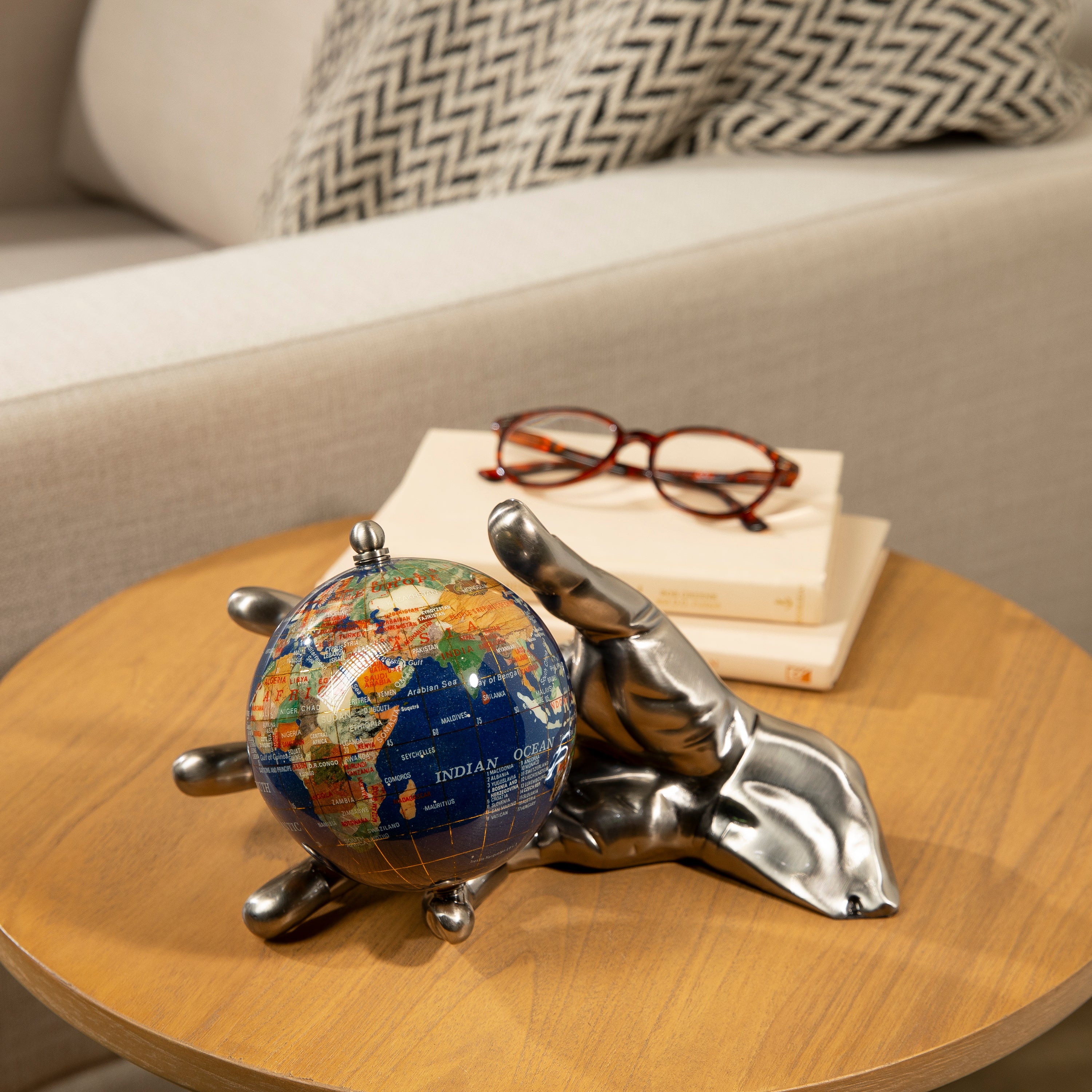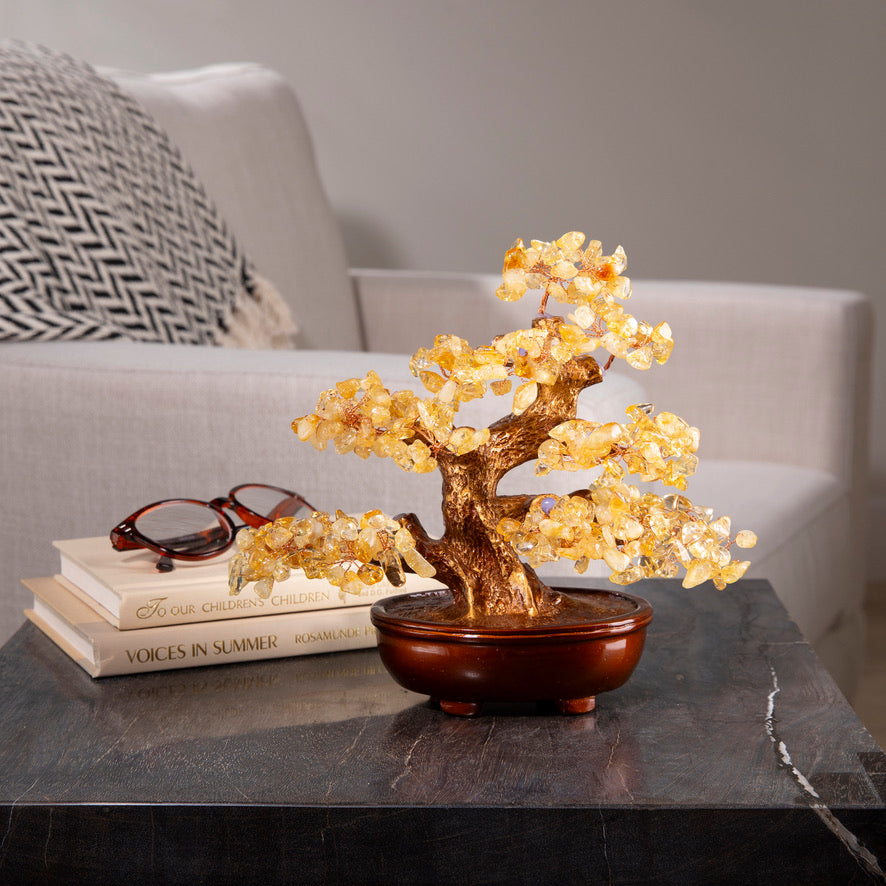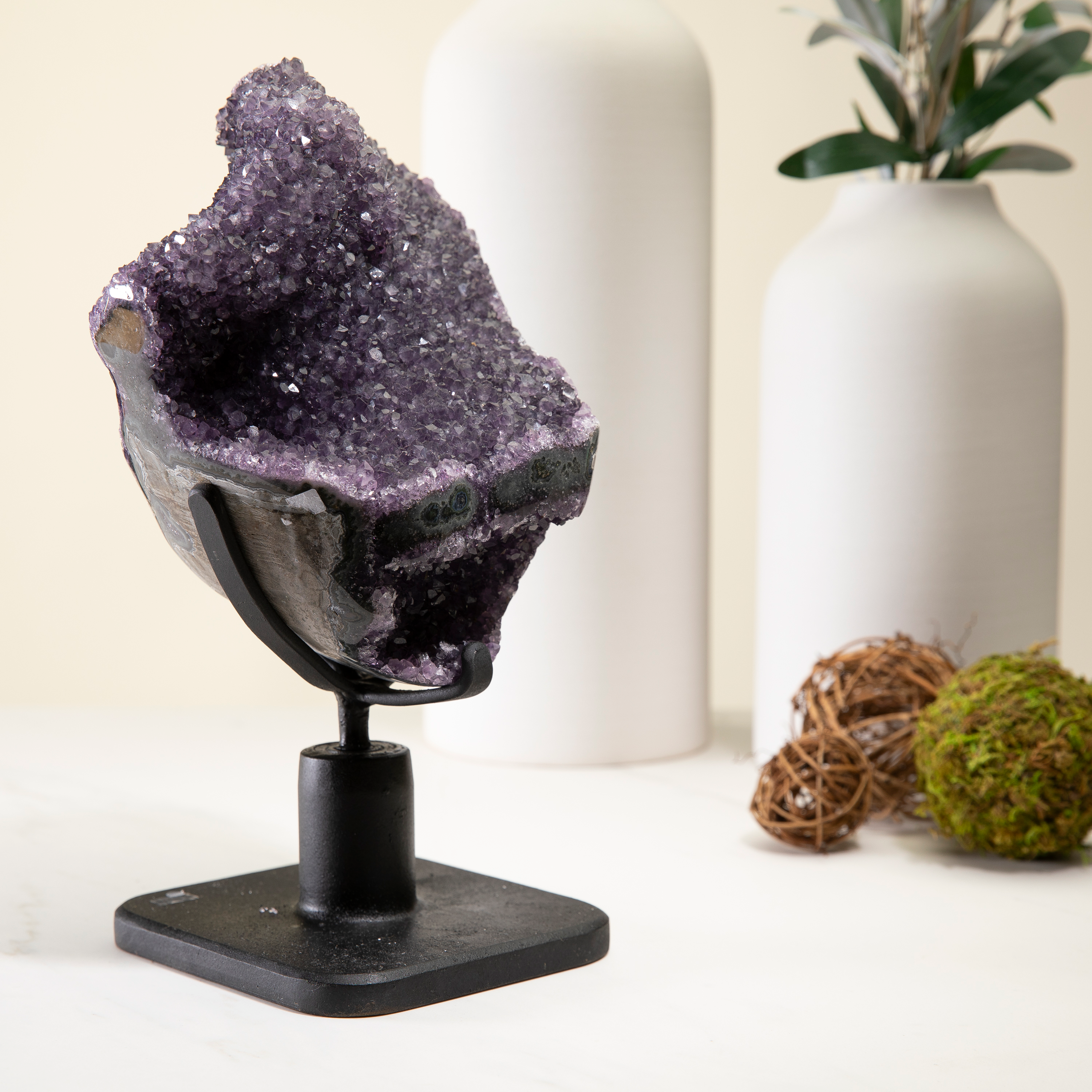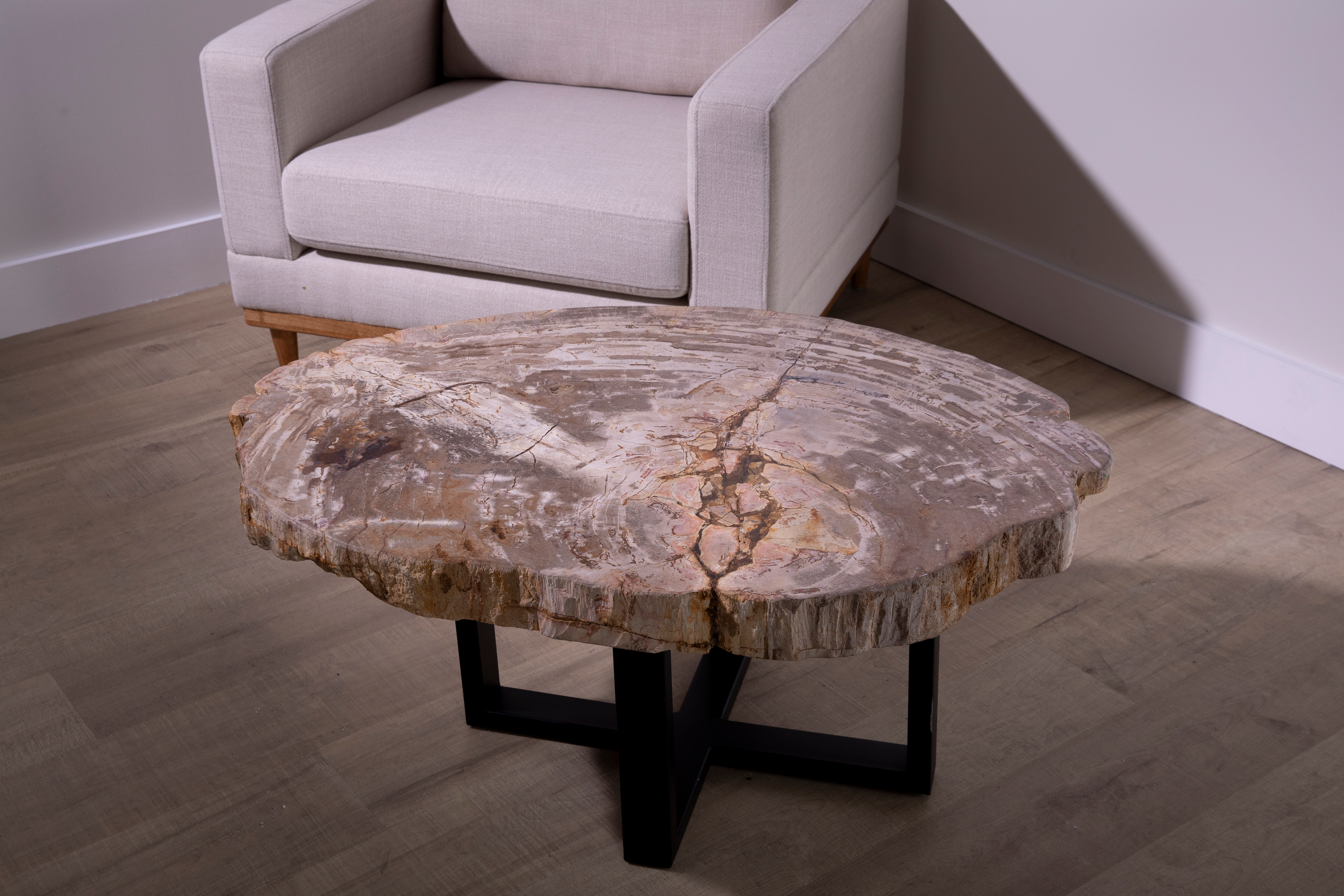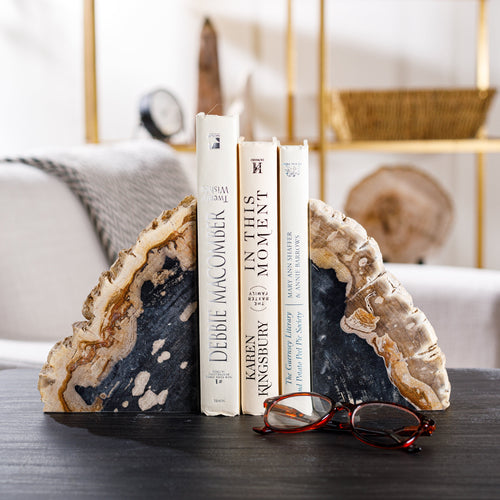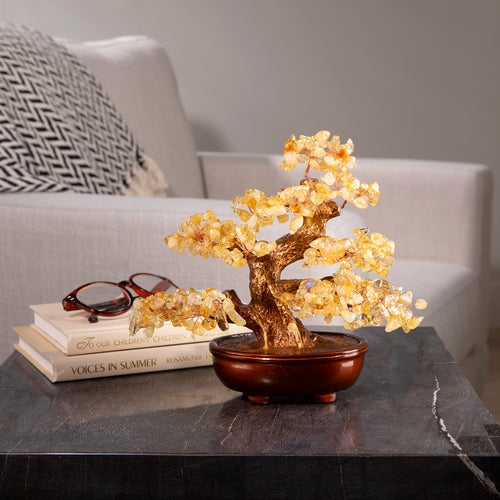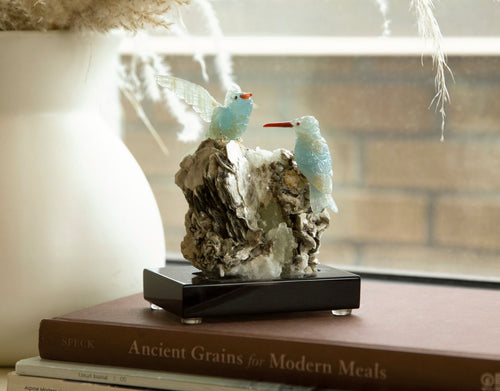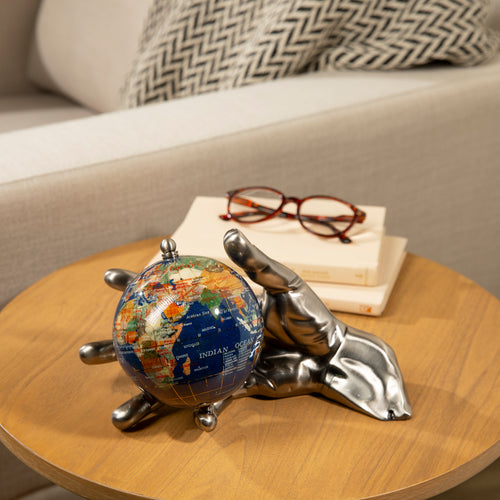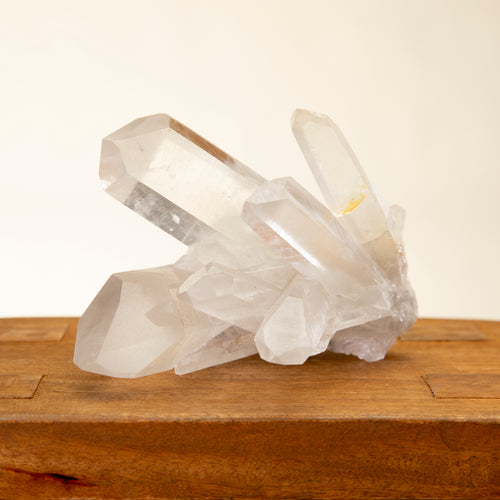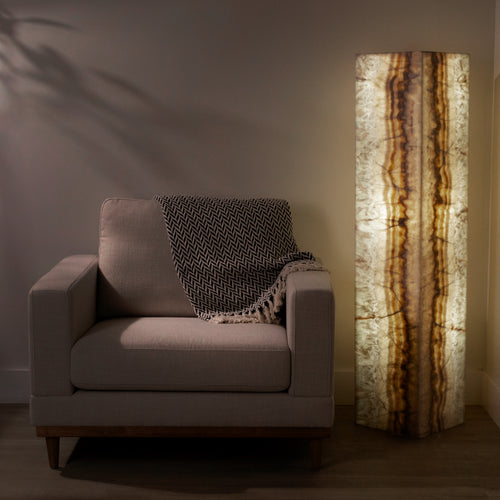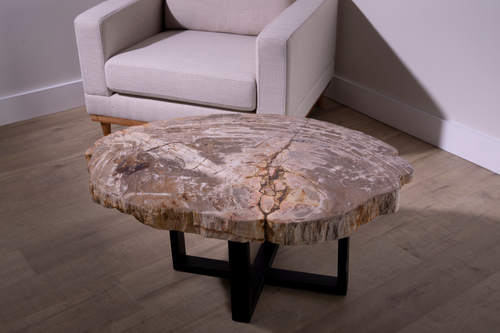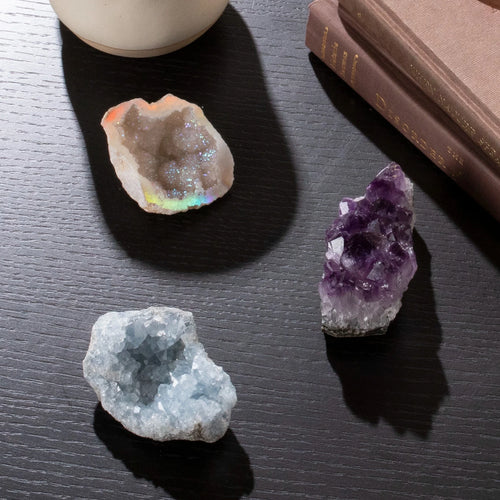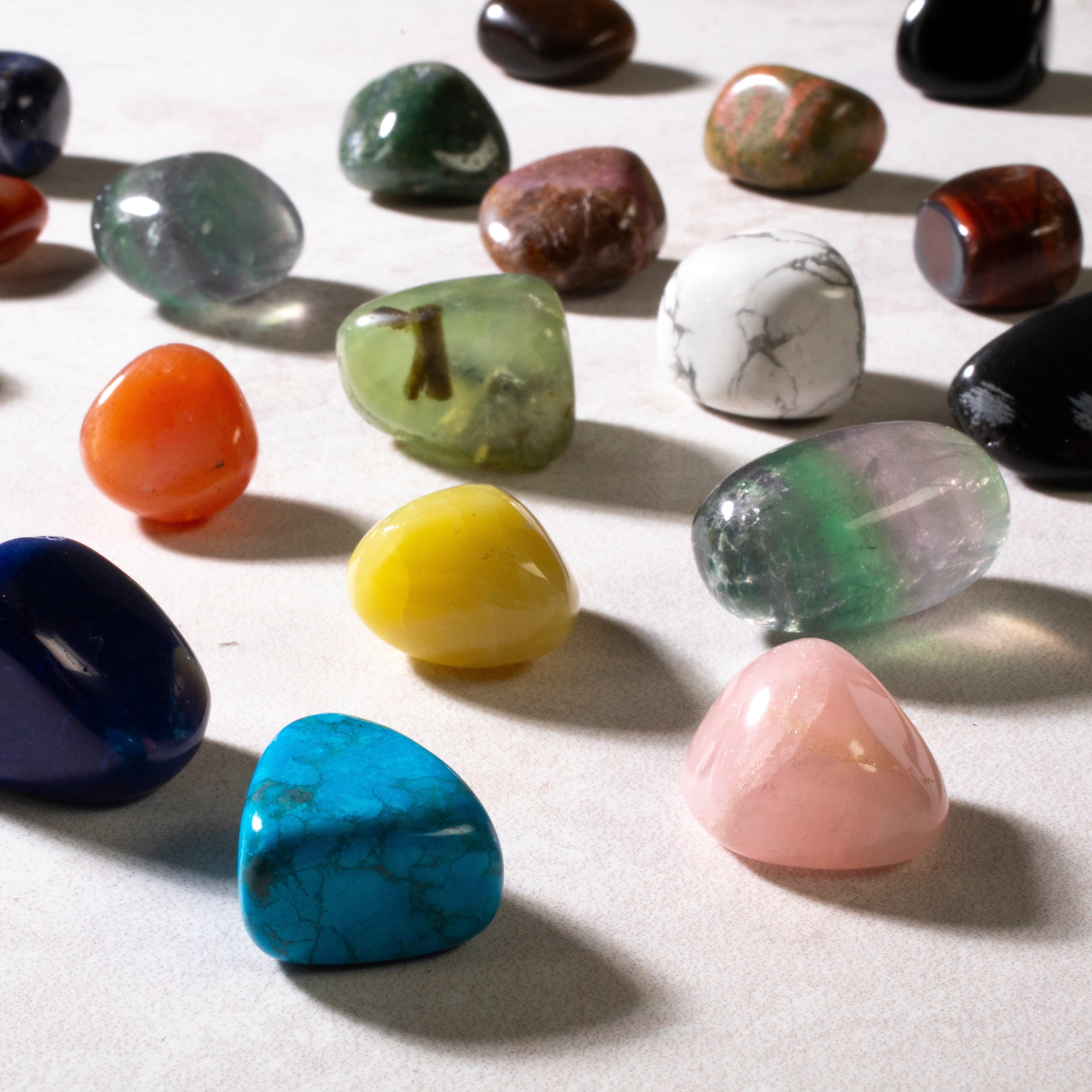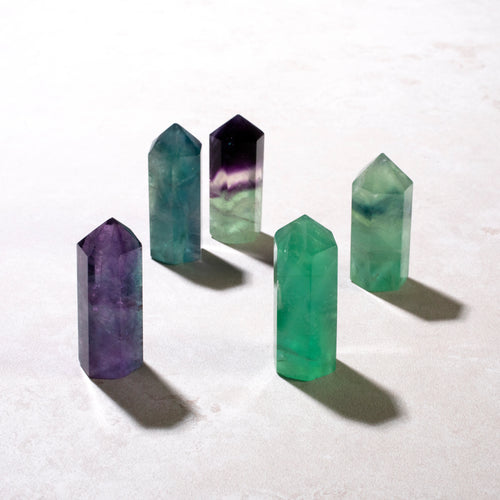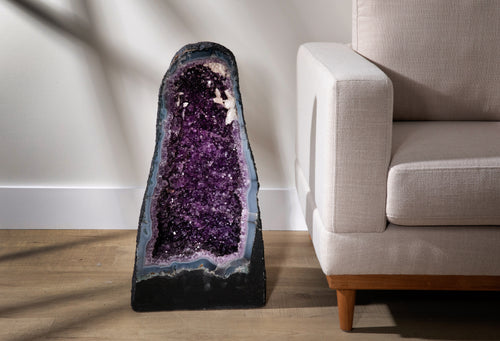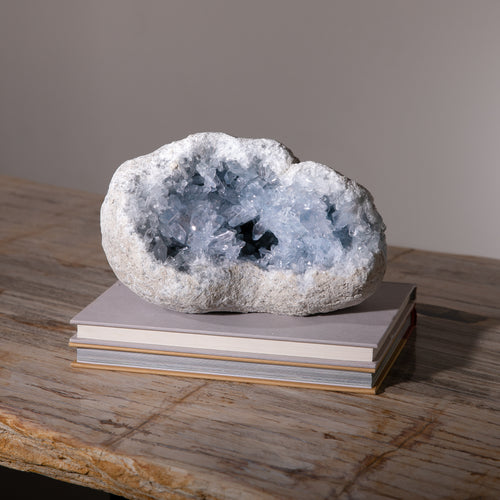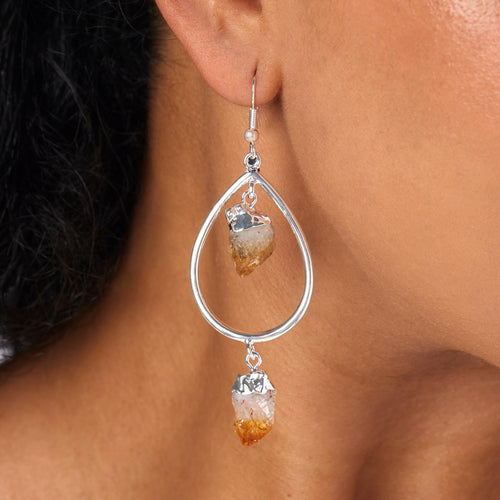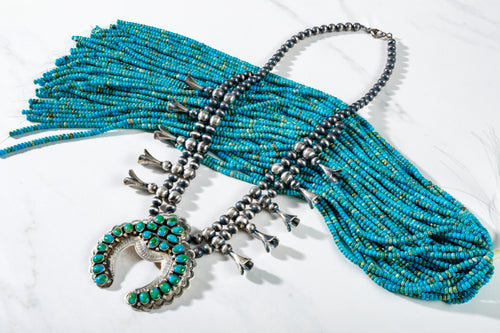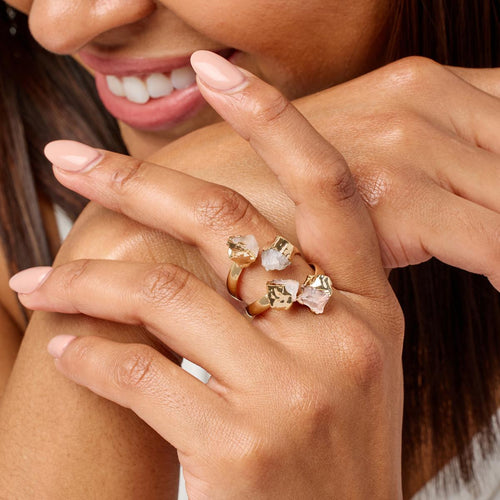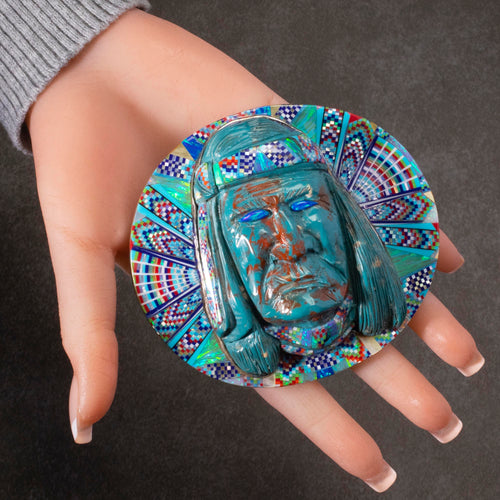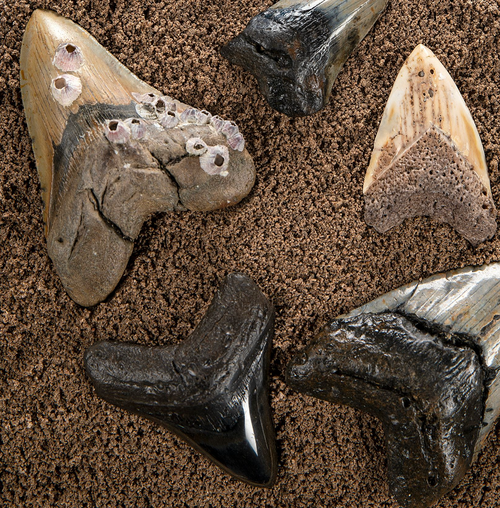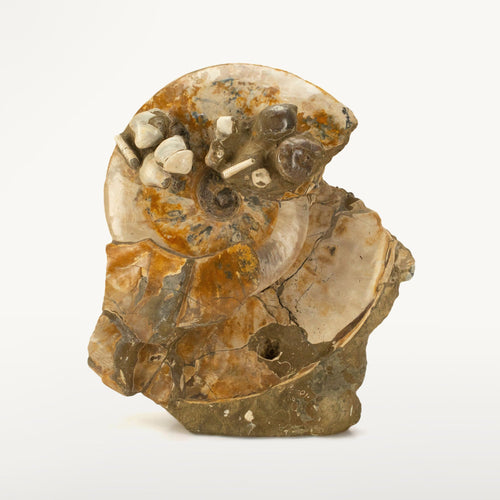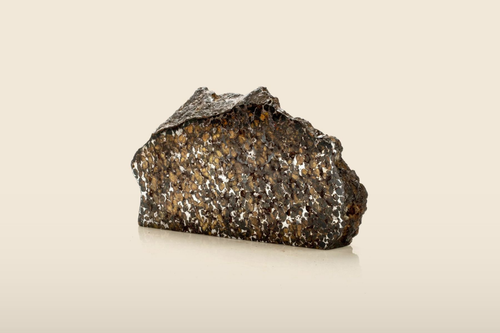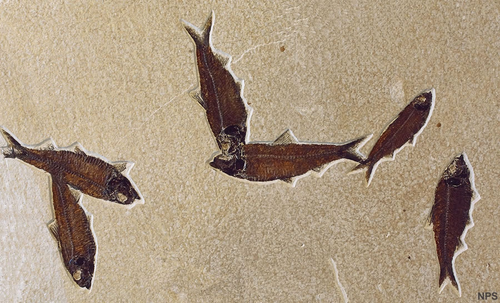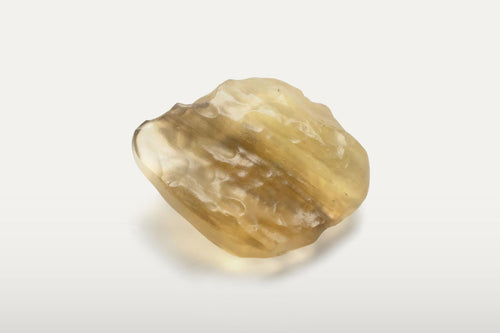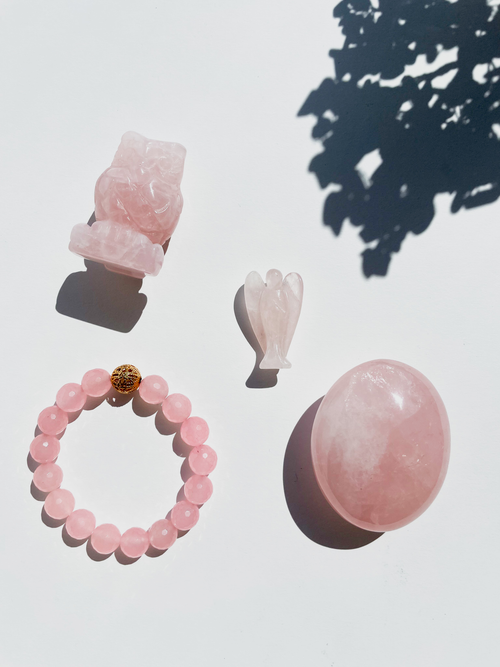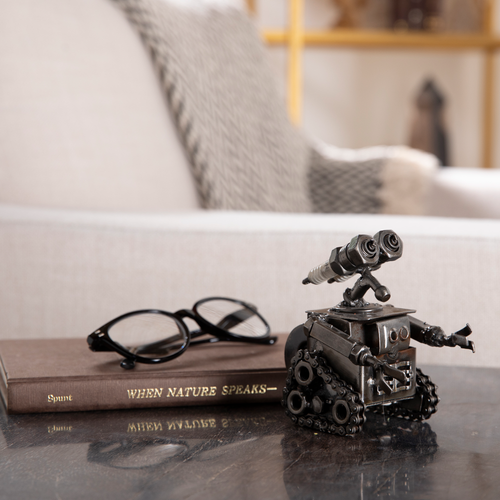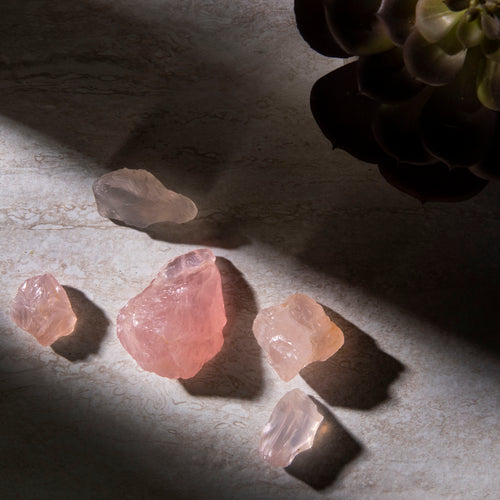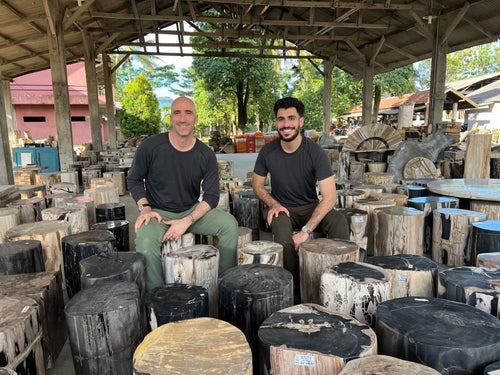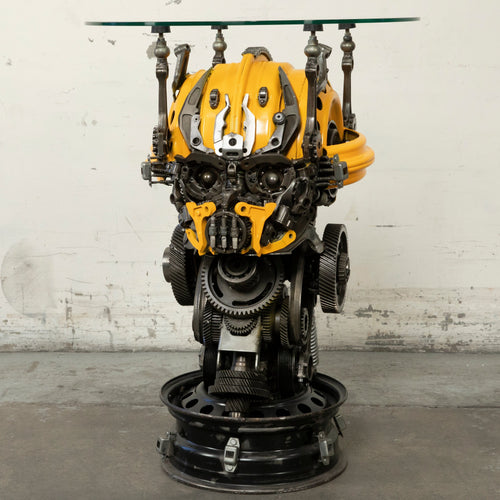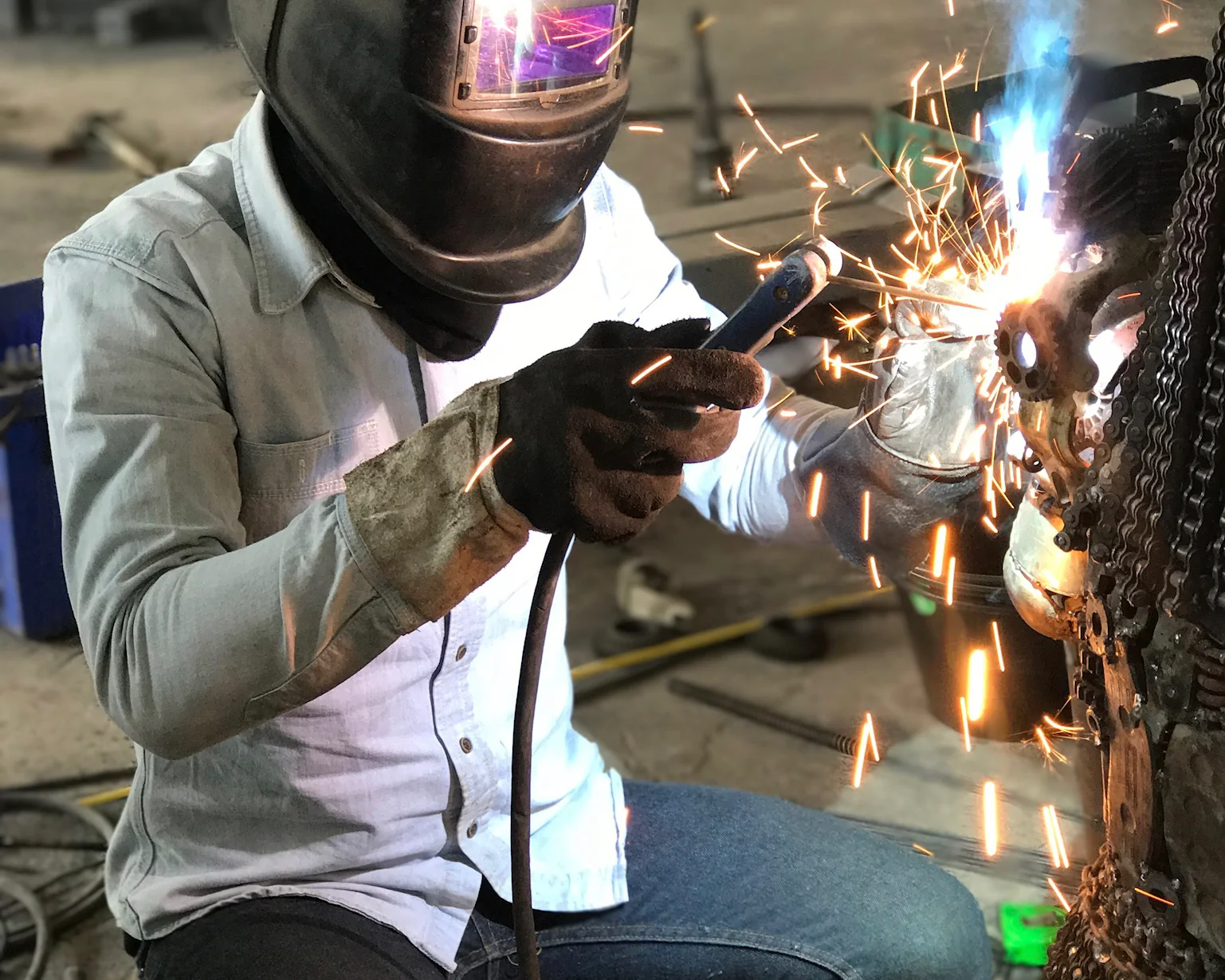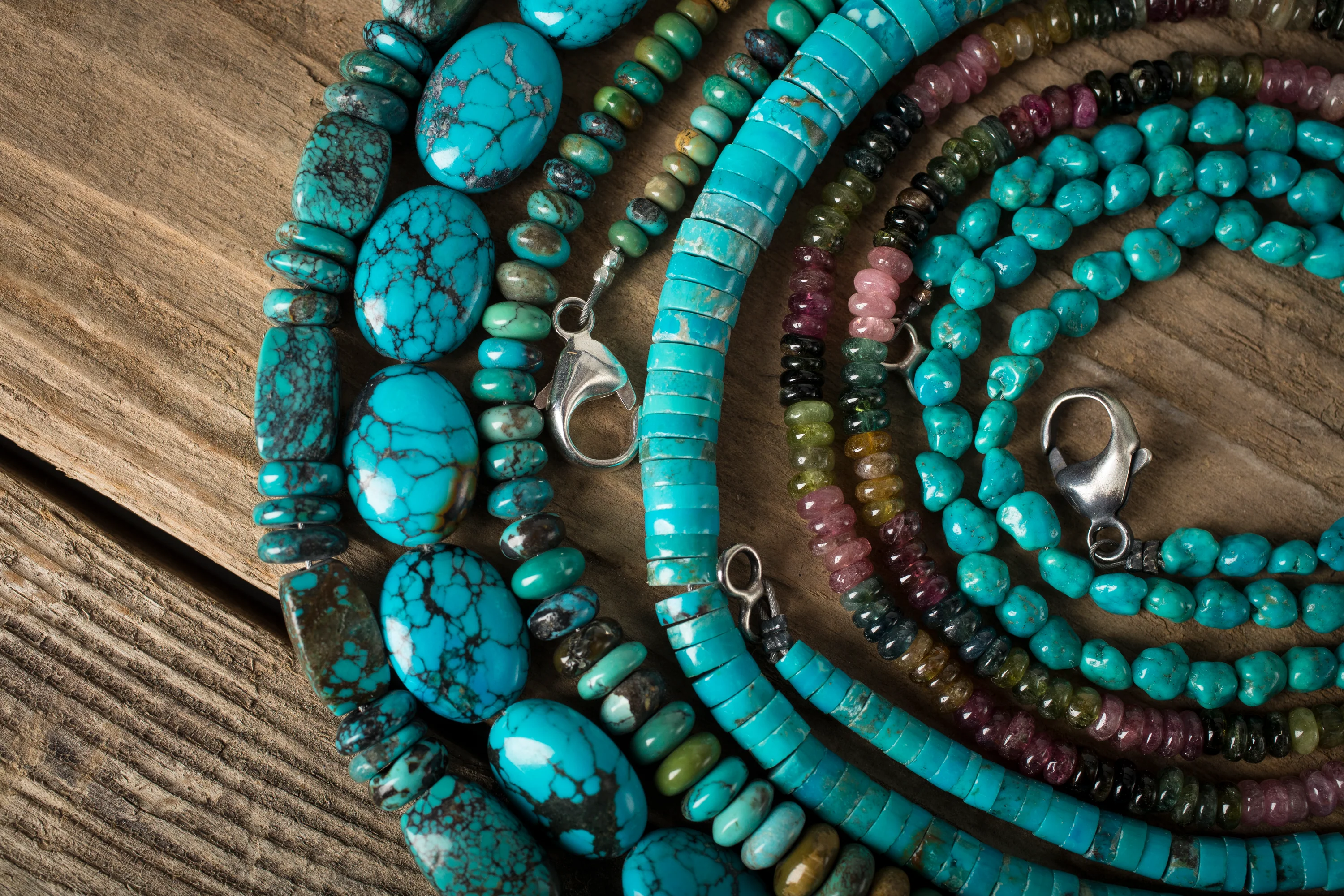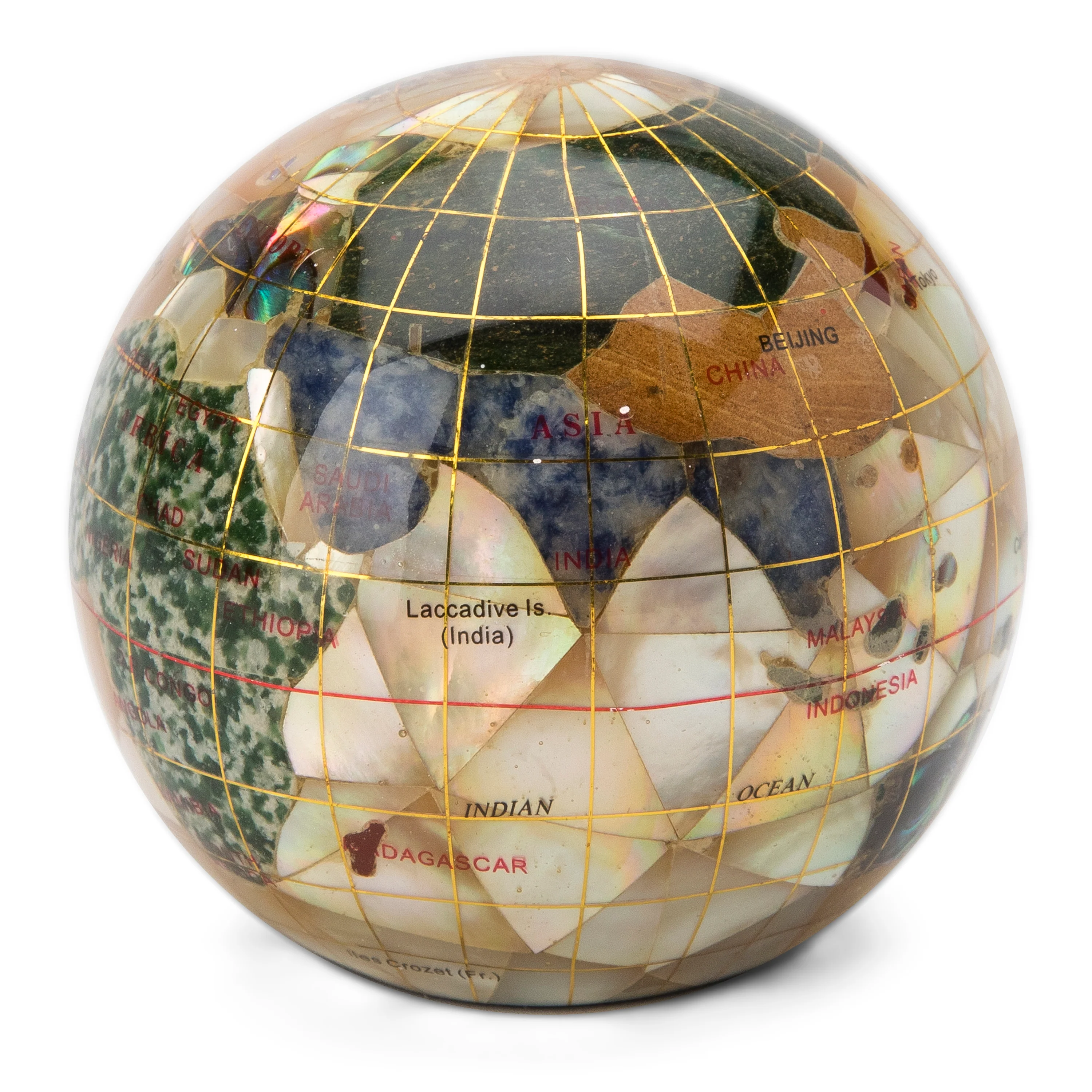
How we make our Gemstone Globes
Gemstone globes are a craft like no other and a wonderful way to have beauty in your space. They’re also a surprisingly accurate way to learn geography. Our vast world is made up of so many beautiful gemstones and shells, harvested from the land and among the seas and oceans. It's wildly fascinating to see where different gemstones come from in indigenous areas around the world. Each semiprecious gemstone represents each individual country on our Kalifano globes and is specifically chosen from their country of origin. Our planet Earth is our home and should be celebrated for all the natural beauty that exists among us.
Due to their handcrafted nature, occasionally a globe is produced with slight geographical or typographical inaccuracies. While we could institute manufacturing procedures to eliminate such errors, we deliberately refrain from making such a move. Our artists at Kalifano strive for perfection, and we encourage their artistry and embrace the occasional idiosyncrasies! A hand-carved gemstone globe will dress up any room at any location. Since they are a very impressive conversation piece, most people’s favorite spots to enjoy their one-of-a-kind gemstone globe are offices, studies, libraries and dens, as well as living rooms, foyers, family great rooms or even bedrooms. Especially popular with world travelers, globes can help you map out your next holiday excursion or business venture.
Semi-Precious Gemstones used in a Gemstone Globe
We source only the highest-quality gemstones, which are placed on the globe according to their origin.Earthy, striped Picture Jasper, which almost looks like wood, makes up both the United States of America and China. Red Jasper is used for Mongolia, and the lustrous Mother-of-Pearl represents Canada and most islands. Turquoise can be found in Turkey, and green Aventurine comes from both India and Brazil. The fun spotted gemstone called Leopard Skin is indigenous to Zimbabwe, and the shimmering Tiger's eye represents Germany. Auspicious Jade comes from France and Burma, with a darker Jade in Russia. Striped Zebra Jasper shows Iran, and a pretty Picasso Jasper is found in Egypt.
Continuing the journey, reconstructed Lapis Lazuli comes from Afghanistan and is the original blue stone that covers most of the entire original Kalifano globe to symbolize our world’s sparkling ocean. A fun spotty Dalmentioner Jasper, which gets its name from its likeness to a spotted dalmatian dog, represents Zambia. Pink Rhodonite comes from Argentina, while the pink and green Jasper known as Unakite originates in the Congo. Light-colored specialty-green Onyx makes up Pakistan, and the rainbow of Abalone shells from the sea represents our friends down under in Australia. Rich Mahogany stones are seen in the country of Saudi Arabia, while the light White Stone shines from the South Pole in Antarctica. Dark-blue Dumortierite also comes from Afghanistan, while the complementary Yellow Jasper originates in Spain. White-marble-like Howlite shows Yemen and Tunisia, Niger is home to Brecciated Jasper, and Tiger Iron can be found in Chad. The sunset-like gem of Mali is known as Mookait.
These are only a few of the many beautiful, unique minerals found on our globes. You’d be surprised at just how many different gemstones can be found around the world.
How a Gemstone Globe is Made
Each of our globes is lovingly made and each gemstone carefully placed. To make each piece, our artists:
- Select natural gemstones. We carefully select only the highest-quality imported gemstones.
- Carve gemstones into shapes of countries. The gemstones are outlined and hand-carved into the shapes of the countries. This process takes countless hours.
- Fill in the opalite oceans. The ocean is formed by soaking the globe in a special mold with a gel composition made up of crushed Mother-of-Pearl, Opal and Abalone to cure and harden them.
- Polish and contour the gemstones.The globe is carefully polished and contoured to give the exterior a smooth, rounded finish in the shape of a sphere. This makes it ready to be labeled with the lettering identifying the oceans, continents, countries and some cities.
- Place 24-karat gold longitude and latitude lines.Each latitude and longitude line is marked using dividers. The lines are hand-placed using 24-karat gold-plated brass ribbons.
- Individually place location names.The country and city names are placed while paying the utmost attention to geographical positioning.
- Finish with a high-gloss polish. The globe is given a final high-gloss polish to bring out the luster of the completed masterpiece.
How to Take Care of a Gemstone Globe
Be cautious when caring for your collectors-item gemstone globe, and avoid harsh chemicals or polishers because they may damage the surface of your globe and stand.
How to Clean a Globe
From our experience, the best way to care for your Kalifano globe is to use a soft cotton cloth damped with rubbing alcohol to shine and remove fingerprints on the globe only. Do not use rubbing alcohol on the stand because it is too harsh.
How to Clean a Globe Stand
Use a soft cloth with a very small amount of uncolored, non-perfumed hand lotion to remove fingerprints, dust and oils. With a clean, dry, soft cotton cloth, wipe away the hand lotion and shine.
